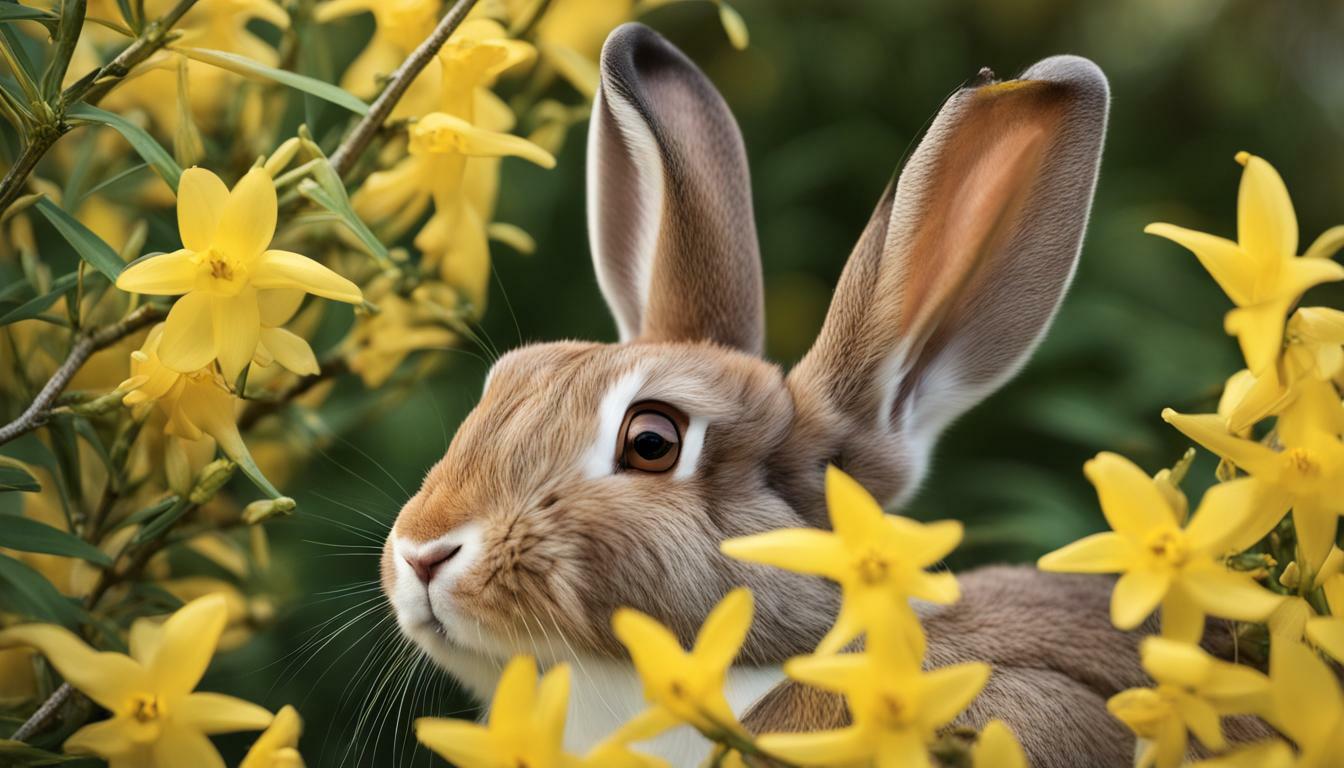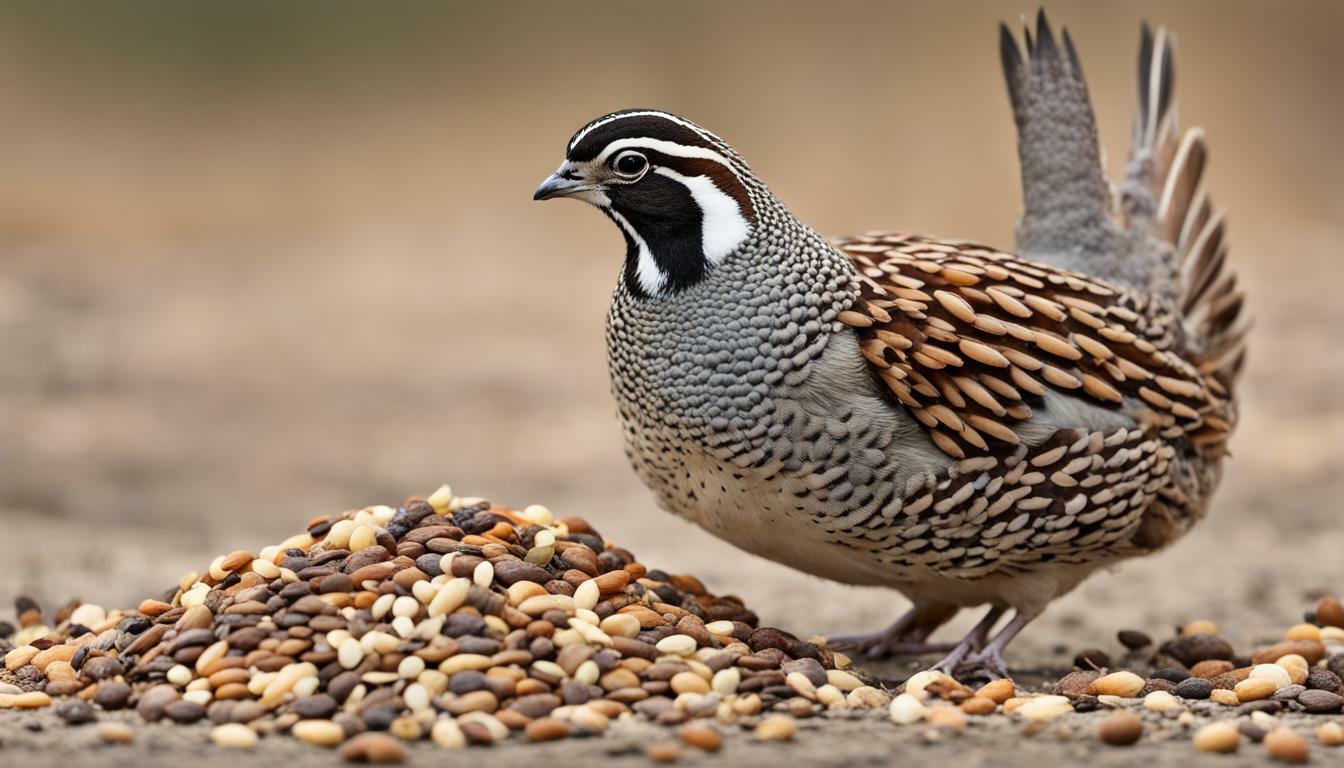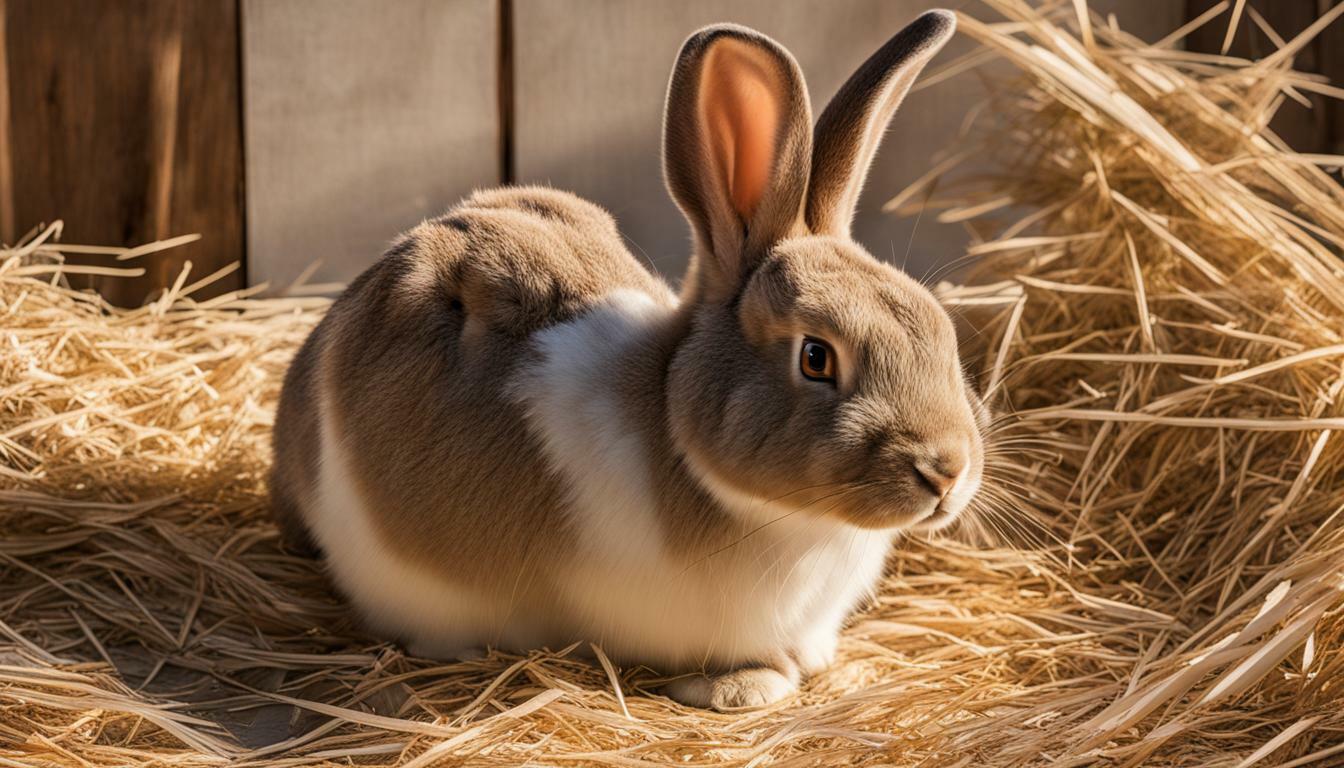Do Rabbits Eat Forsythia? Uncover the Truth Here!

Table of content:
- Do Rabbits Eat Forsythia Bushes?
- What Plants Do Rabbits Avoid?
- Are Forsythia Toxic to Rabbits?
- What Animals Eat Forsythia Bushes?
- Do Deer Eat Forsythia?
- Are Forsythia Berries Edible for Humans?
- How Do I Protect My Forsythia From Rabbits?
- What Kind of Fencing Keeps Rabbits Out of Gardens?
- What Natural Rabbit Repellents Work?
- How Do I Keep Rabbits From Eating My Plants?
- Final Thoughts
Forsythia bushes are a popular landscaping choice, with their bright yellow flowers lighting up yards and gardens in early spring. But these shrubs may become targets for local rabbits and hares looking for an easy meal. Will rabbits eat forsythia if given the chance?
Do Rabbits Eat Forsythia Bushes?
Rabbits are herbivorous lagomorphs that feed on a wide variety of plant materials, including the leaves, flowers, bark, and twigs of many bushes and shrubs. Although they prefer greens, rabbits will sample many parts of a plant to meet their nutritional needs.
So do rabbits eat forsythia? The answer is yes – rabbits can and will eat forsythia if given the access and opportunity. Forsythia bushes provide tender young leaves, nutritious flowers, edible berries, and bark that rabbits can gnaw and chew on.
Forsythia likely won’t be a rabbit’s first choice, as it has some toxic compounds that may cause gastrointestinal upset. But during times of scarcity when their preferred foods are limited, hungry bunnies will consume forsythia as part of their broad palate.
What Plants Do Rabbits Avoid?
While rabbits are generalized herbivores, they do have preferences and plants they avoid. Understanding what rabbits don’t like to eat can help protect landscape plants.
Some plants rabbits tend to avoid include:
- Plants with strong scents – Lavender, rosemary, sage
- Plants with prickly textures – Cacti, holly, thistles
- Plants high in alkaloids – Daffodils, foxglove
- Plants high in oxalates – Spinach, beet greens, rhubarb
Rabbits have a strong sense of smell and prefer mellower, less pungent plants. They also don’t like getting poked by thorns and spines. Toxic oxalates and alkaloids can upset their sensitive digestive systems.
Focusing on adding these types of plants can create landscaping that discourages rabbit browsing. Check toxicity before planting anything rabbits may reach.
Are Forsythia Toxic to Rabbits?
While not exactly toxic, forsythia does contain compounds that can irritate a rabbit’s digestive system and cause issues if overconsumed.
The bark, stems, leaves, and seeds of forsythia contain saponins – naturally occurring detergent-like chemicals found in many plant species. Saponins produce a soapy, frothy texture when mixed with water.
Ingesting moderate to high amounts of saponins can cause:
- Drooling
- Oral irritation
- Upset stomach
- Diarrhea
- Reduced appetite
Rabbits will limit how much forsythia they eat to avoid getting sick. But very hungry rabbits may overindulge despite the risks. Provide alternatives to minimize forsythia consumption.
What Animals Eat Forsythia Bushes?
In addition to rabbits, forsythia serves as a food source for other backyard wildlife. Animals attracted to this flowering shrub include:
- Deer – Deer will browse on forsythia leaves, twigs, and bark year-round. New growth is especially at risk.
- Voles – These small rodents burrow under and around forsythia roots, gnawing and feeding on root bark.
- Caterpillars – Forsythia flowers attract spring caterpillars looking for nectar.
- Squirrels – Squirrels may gnaw on forsythia bark and twigs and consume the seeded fruits.
- Birds – Birds don’t eat much forsythia itself, but do feed on associated insects and fruits.
Rabbits are the main forsythia consumers, but protecting bushes from deer, voles, and other wildlife takes full deterrent measures.
Do Deer Eat Forsythia?
Deer pose a significant forsythia bush threat, even more so than rabbits. Deer have a robust herbivorous appetite and aren’t deterred by forsythia’s mild toxicity.
All parts of the forsythia plant are fair game to a deer – leaves, stems, bark, flowers, fruits, and twigs. Deer thrive on woody browse and relish the opportunity forsythia provides.
New growth on forsythia bushes is especially vulnerable in late winter and early spring. Hungry deer seek out the fresh, tender shoots once snow cover recedes. Established bushes may be nibbled, antler-rubbed, and stripped of branches.
Protect forsythia from deer browsing with repellents or physical barriers like fencing. Otherwise, expect heavy damage if deer are present.
Are Forsythia Berries Edible for Humans?
While forsythia serves as a food source for wildlife, it has limited edibility for human consumption. The yellow flowers are non-toxic but not particularly tasty.
However, the reddish seeded fruits emerging later in summer do offer some edibility. Forsythia berries can be described as:
- Crunchy
- Mildly sweet
- Similar to figs or raisins
The fruits can be safely eaten raw off the bush. They also work well in jam. Forsythia berry tea made from dried fruits has a mild, earthy flavor with astringent qualities.
However, the seeds inside forsythia berries contain the highest levels of saponins. It’s best to remove seeds before significant consumption. A few berries straight from the bush pose no issues.
So while forsythia berries aren’t poisonous, their edible appeal is low. The wildlife can have this one!
How Do I Protect My Forsythia From Rabbits?
If rabbits are helping themselves to your forsythia, action is needed to prevent damage. Use an integrated pest management approach combining deterrents:
- Fencing – A fence with mesh holes smaller than 1 inch x 1 inch will keep rabbits out. Chicken wire can work temporarily.
- Repellents – Organic mixes of hot peppers, garlic, and castor oil may repel rabbit browsing. Reapply after rain.
- Predator urine – The scent of predators like coyotes, foxes, or bobcats can scare rabbits. Work best with multiple use.
- Tankage – Blood meal and bone tankage sprinkled around plants offer an organic fertilizer that rabbits don’t like.
- Motion-activated sprinklers – These devices detect rabbits and give them a harmless spray of water to startle them away.
Be diligent and persistent when using rabbit repellents. Preventing access with fencing is most effective long-term.
What Kind of Fencing Keeps Rabbits Out of Gardens?
To protect landscaping and gardens, install fencing that keeps persistent rabbits at bay. The best choices include:
- Chicken wire – Easy to install and low cost, works well placed around existing plants. Needs maintenance as plants grow.
- Hardware cloth – Sturdier than chicken wire with 1/4 inch mesh to exclude baby bunnies. Requires supporting frame.
- Welded wire – Similar to hardware cloth but comes in larger rolls for perimeter fencing. Durable and easy to work with.
- Wood – Fences or lattice barriers work if built solid without gaps. Use wood, hardware cloth, and corrugated aluminum for best results.
- Vinyl-coated wire – With smaller holes and heavier gauge, these are tough for rabbits to get through while blending into landscapes.
Proper installation of rabbit fencing requires burying the bottom few inches underground. Be sure to secure and maintain fences to prevent entry points.
What Natural Rabbit Repellents Work?
For temporary or immediate protection, natural repellents can be used in conjunction with or instead of fencing. Homemade or commercial options include:
- Hot pepper – Cayenne, jalapeno, habanero, or other hot varieties can be chopped/pureed and steeped into a liquid spray. Reapply after rain.
- Garlic oil – Chopped garlic soaked in mineral oil creates a smelly repellent that can coat plants.
- Onion – Similar to garlic preparations, soaked onion and water makes a spray.
- Citrus oils – Spraying orange, lemon, grapefruit oils around plants leaves a strong rabbit-deterring scent.
- Blood meal – Dried blood products like bone and blood meal sprinkled around plants can repel through smell and taste.
- Predator urine – Available commercially, these mimic the scent markers of animals that prey on rabbits.
- Repellent plants – Some plants like lavender naturally repel rabbits when planted around gardens.
Using 2-3 different rabbit repellents together boosts effectiveness. Be diligent with reapplication as needed to deter destructive damage.
How Do I Keep Rabbits From Eating My Plants?
Discouraging those fluffy-tailed pests requires diligence and persistence. Follow this advice to protect plants:
- Remove any preferred rabbit foods nearby to make plants less appealing.
- Clean up fallen fruits/berries – don’t give rabbits extra snacks.
- Use fencing/barriers to physically block access. Bury bottoms in soil.
- Apply repellent sprays using ingredients like hot pepper, garlic, and predator urine.
- Add motion-sensor sprinklers that startle rabbits away from gardens.
- Use slow-release fertilizers high in ammonium sulfate, an odor rabbits dislike.
- Add repellent companion planting like lavender, thyme, catmint around vulnerable plants.
- Use tree trunk guards to protect young bark from gnawing damage.
- Apply plastic guards/protective netting tightly around valuable plants.
- Clean up brush piles, log piles, rock walls, and hiding spots in yards.
With persistence and multiple deterrent strategies, rabbits can be trained to avoid landscaping instead of treating it like an all-you-can-eat buffet. Protect those forsythia blossoms!
Final Thoughts
While rabbits can and will eat forsythia if given the chance, they likely won’t decimate bushes due to saponin compounds that cause stomach upset with overindulgence. But during tough times, hungry bunnies may overlook some mild toxicity.
Protect forsythia, as well as more vulnerable plants, with fencing, repellents, and barriers. Be diligent when new growth appears in spring, as rabbits seek out fresh greens. A multi-prong approach helps keep rabbits’ appetites focused away from landscape destruction and more towards meadow fare their digestive systems are built to handle.
With persistent management, you can enjoy forsythia’s iconic yellow blooms each spring without sacrificing plants to trailing lagomorphs. Achieving a balance allows both decorative landscaping and a local bunny population to thrive.
Welcome. I’m Adreena Shanum, the proud owner of this website, and I am incredibly passionate about animals, especially poultry. I founded adreenapets.com as a labor of love, stemming from my desire to share my knowledge and experiences with poultry enthusiasts worldwide.




